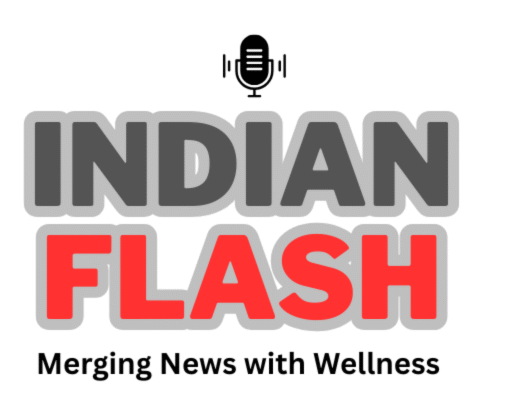Discover how DNA-based diets and nutrigenomics personalize nutrition for weight loss, better health, and disease prevention.
A New Chapter in Nutrition: Eat According to Your DNA
Many of us have tried multiple diets—low-carb, paleo, intermittent fasting—but still struggle to find long-term results. Why?
Because these diets don’t account for your unique biology. DNA-based diets change that by offering personalized nutrition plans tailored to your genetic code.
This emerging field—nutrigenomics—helps you understand how your genes affect your response to food and nutrients.
What Is Nutrigenomics and Why Does It Matter?
Nutrigenomics studies how genes and nutrition interact to influence health, metabolism, and disease.
Unlike generic nutrition plans, DNA-based diets analyze your genetic variants to determine:
- How you metabolize carbs, fats, and proteins
- Your sensitivity to caffeine or alcohol
- Your ability to absorb vitamins like D and B12
- Whether you’re at risk for obesity or diabetes
Instead of guesswork, you’re guided by scientific data from your own DNA.
The Two-Way Street: Genes and Nutrients Affect Each Other
Genes influence how we absorb and use nutrients. But food also influences how our genes behave. This is epigenetics.
Epigenetic changes—like DNA methylation and histone modification—can switch genes on or off, affecting how your body heals and ages.
So, healthy habits like balanced meals, good sleep, and stress control don’t just support wellness—they may literally reprogram your gene expression.
How Does DNA Testing Create a Custom Nutrition Plan?
Thanks to saliva-based genetic tests, labs can now analyze your DNA for SNPs (Single Nucleotide Polymorphisms).
These small gene variations offer insight into:
- Your macronutrient needs
- Vitamin deficiencies
- Food intolerances (like gluten or lactose)
- Your natural metabolism speed
- Risk for heart disease, diabetes, or obesity
A certified expert can use these insights to build a nutrition plan that fits you—not the latest trend.
Biohacking + Nutrition: The Rise of Precision Health
DNA diets are part of the growing biohacking movement—using data and science to optimize health.
Paired with tools like CGMs (Continuous Glucose Monitors), smartwatches, or fitness trackers, you can monitor:
- Blood sugar responses to meals
- Stress impacts on recovery
- Sleep quality and energy levels
This creates a 360-degree picture of your health and lets you adjust in real-time.
Q&A: Can DNA-Based Diets Really Help?
Q: Can a DNA diet boost weight loss?
A: Yes. It helps tailor your intake of carbs, proteins, and fats based on your metabolism, improving efficiency.
Q: Are these diets backed by research?
A: Nutrigenomics is still evolving but has growing evidence. Results vary depending on your overall health and lifestyle.
Q: How long does it take to get DNA results?
A: Most DNA reports take 2–4 weeks after you submit your sample.
Q: Do lifestyle habits still matter?
A: Absolutely. Sleep, stress, exercise, and environment play huge roles—even with genetic data.
Epigenetics: Your Genes Are a Blueprint, Not a Destiny
Epigenetics shows us that behavior and environment can modify how genes express—without changing your DNA.
For instance:
- A person with inflammation-linked genes may benefit from omega-3s and turmeric.
- Someone with liver sensitivity may need to avoid alcohol or saturated fats.
This isn’t about restriction. It’s about precision health tailored to your body’s needs.
The Growing Popularity of DNA-Based Diets
The DNA diet market is booming. In India alone, genetic testing reached ₹15,400 crore ($1.8 billion) in 2024.
By 2030, the global nutrigenomics market is expected to grow over 15% CAGR.
What’s driving this trend?
- Affordable DNA tests
- Personalized health solutions
- Growing awareness of preventive care
- Integration with health apps and wearables
Are DNA Diets 100% Reliable?
Not entirely. Genetic tests are accurate, but applying the data to nutrition isn’t foolproof yet.
Why? Because:
- Genes don’t account for gut microbiome, hormones, or environment
- Results need interpretation in clinical context
- Self-application without guidance can lead to errors
That’s why working with qualified experts is essential.
Caution: Don’t Biohack Alone
DNA data is powerful—but risky if misused.
Avoid common pitfalls like:
- Ignoring symptoms in favor of gene data
- Self-diagnosing from online reports
- Following extreme diets not suitable for your health
For safe results, combine DNA insights with regular checkups, clinical supervision, and real-time health feedback.
The Future of Nutrigenomics: Drugs and Designer Supplements
The future of DNA nutrition goes beyond meal plans.
- Epigenetic drugs are being developed to regulate gene expression in obesity, cancer, and metabolic diseases
- Gene-targeted supplements or nutraceuticals aim to enhance detox, reduce inflammation, or support mitochondrial function
However, experts warn that more long-term studies are needed to confirm safety and efficacy.
Thinking of Trying a DNA Diet? Start Smart
If you’re considering a DNA-based plan, follow these steps:
✅ Choose reputable companies with scientific credibility
✅ Get support from trained nutritionists or doctors
✅ Track your progress with wearables or health apps
✅ Keep learning—this field evolves quickly
✅ Use your DNA as a guide, not a strict rulebook
FAQs About DNA-Based Nutrition
1. What does DNA nutrition testing cost?
In India, expect to pay between ₹5,000 and ₹25,000, depending on the level of detail.
2. Can people with medical conditions follow DNA diets?
Yes, but only under medical supervision, especially for chronic illness.
3. Are DNA diets suitable for kids or seniors?
Yes. Nutrition plans are customized based on age, genes, and health goals.
4. What kind of changes might I need to make?
You may need to shift macronutrient ratios, add vitamins, or eliminate specific foods based on genetic intolerance.
Conclusion: Let Your Genes Guide—Not Dictate—Your Wellness
DNA-based diets mark a revolution in personalized nutrition. They offer deep insights—but they don’t replace the basics.
Use your DNA like a GPS. It tells you where you could go. But it’s your daily habits—food, sleep, stress, and movement—that get you there.
So if you’re ready to try a smarter, science-based way to eat, your genes might just hold the answer.
But listen to your body too. It’s the most accurate source of truth you have.



